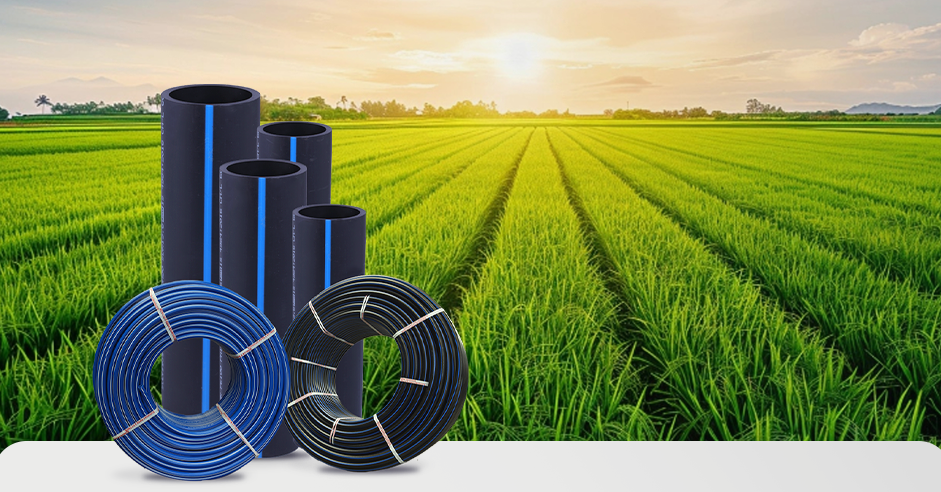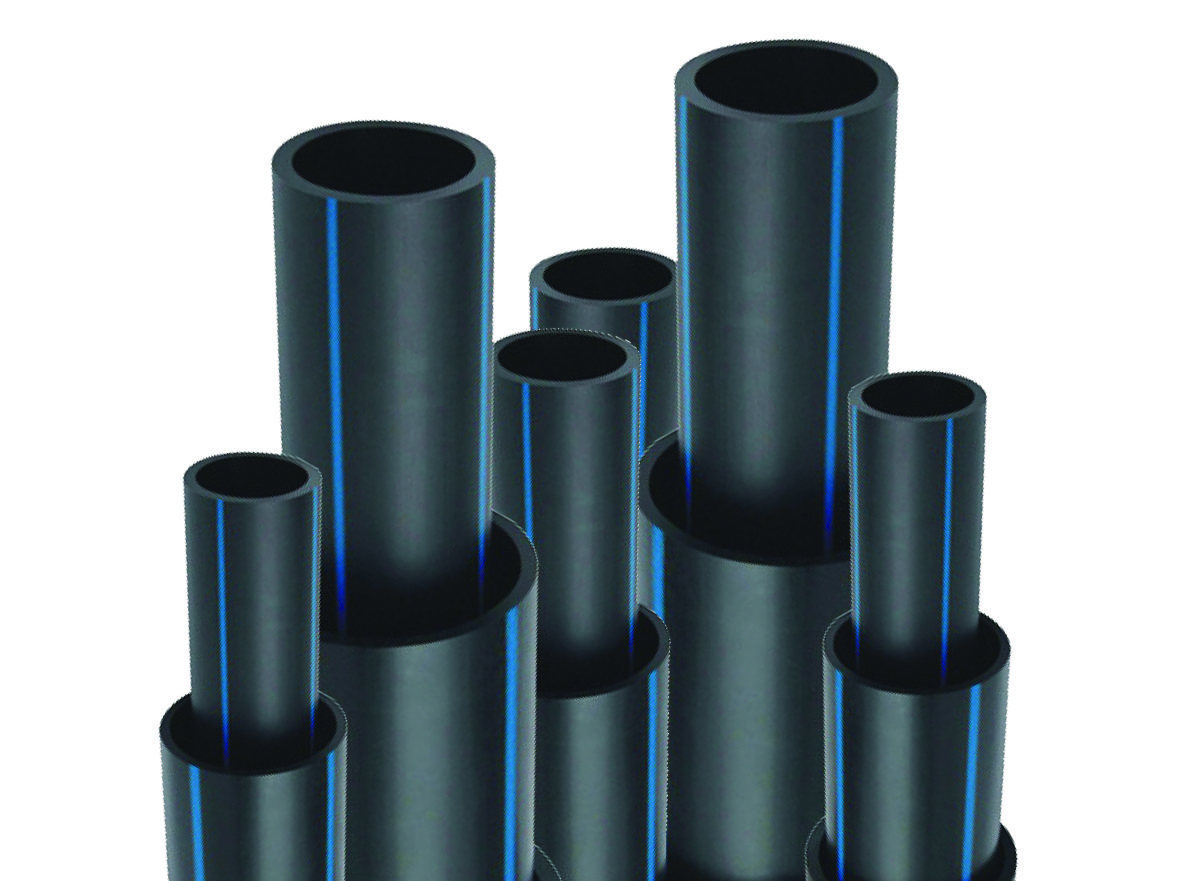Understanding the Key Advantages of HDPE Pipeline for Water and Wastewater Management
The usage of HDPE pipe in water and wastewater monitoring provides various benefits that merit consideration. Its extraordinary resilience and lengthy life expectancy make it a recommended selection for many jobs. In addition, the material's resistance to rust and chemical damages improves its dependability in numerous environments. The benefits prolong beyond just longevity and resistance. hdpe pipe suppliers Midland TX. Exploring its cost-effectiveness and ecological influence exposes much more compelling factors for its extensive adoption in contemporary facilities
Extraordinary Durability and Long Life

HDPE pipe stands out for its remarkable durability and longevity, making it a favored choice in water monitoring systems. Built from high-density polyethylene, these pipelines can endure significant pressure and tension, making sure trustworthy efficiency in time. Their durable nature enables them to withstand extreme environmental conditions, including temperature variations and soil motions, which can cause various other materials to fail.
The lifespan of HDPE pipes usually goes beyond 50 years, supplying an affordable service for towns and industries alike. In addition, the material's lightweight residential properties simplify installation, minimizing labor costs and durations. This sturdiness minimizes the need for constant repair work or substitutes, additionally boosting its economic allure.
In water management applications, the dependability of HDPE pipelines means less disturbances and enhanced solution continuity, making them essential to sustainable framework advancement. The mix of sturdiness and longevity strengthens HDPE's role as a foundation in reliable water management options.

Resistance to Corrosion and Chemical Damage
While several products surrender to deterioration and chemical damages in time, HDPE pipes exhibit impressive resistance, making them perfect for various water management applications. This strength stems from the molecular structure of high-density polyethylene, which is naturally non-reactive and does not corrode like metals or break down from direct exposure to severe chemicals. Consequently, HDPE is very reliable in environments with aggressive compounds, such as wastewater systems that may include acids, bases, and natural solvents.
In addition, HDPE pipes can hold up against ecological factors such as soil acidity and saline conditions, even more improving their viability for varied applications (American Plastics HDPE Pipe for Oilfield). Their capacity to keep architectural stability over time decreases the danger of leakages and failings, which is vital in making sure the security and integrity of water distribution and wastewater monitoring systems. As a result, the resistance to corrosion and chemical damages markedly adds to the total effectiveness and long life of HDPE piping options
Cost-Effectiveness and Economic Advantages
When taking into consideration the financial effects of water monitoring systems, the cost-effectiveness of HDPE pipelines ends up being apparent. These pipelines offer lower installation and maintenance expenses compared to traditional materials like metal or concrete. Their light-weight nature streamlines transportation and installment, resulting in decreased labor expenditures. In addition, HDPE pipelines exhibit a lengthy life-span, usually exceeding half a century, which converts to fewer substitutes and long-lasting cost savings.
Moreover, the resistance of HDPE to corrosion and chemical damages reduces the demand for costly fixings and replacements. The pipelines also support efficient water flow, lowering energy prices linked with pumping systems. By minimizing leaks and water loss, HDPE pipes add to substantial financial advantages for towns and imp source industries alike. Overall, the first financial investment in HDPE piping can generate significant economic returns over the life expectancy of the water administration system, making it a prudent choice for lasting infrastructure development.
Environmental Sustainability and Minimized Influence

Versatility and Flexibility in Installment
Because of their distinct homes, HDPE pipelines use amazing adaptability and versatility in installment, making them appropriate for a vast array of applications. Their light-weight nature enables for much easier handling and transportation, minimizing labor prices and installation time. HDPE pipelines can be bent and formed to fit different terrains and task requirements, which is specifically helpful in challenging settings.
Furthermore, their resistance to deterioration and chemical damage permits setup in varied setups without the need for specialized safety coverings. The ability view website to fuse joints creates a click over here now continuous, leak-free system, enhancing the general integrity and reliability of the installment. HDPE's flexibility additionally suits ground movement, decreasing the threat of damages in areas prone to moving soil. Generally, these attributes make HDPE pipelines not just versatile yet also a favored option for water and wastewater monitoring systems.
Often Asked Questions
Exactly How Does HDPE Pipe Compare to PVC in Water Monitoring Applications?
HDPE pipe uses premium adaptability, resistance to rust, and longevity compared to PVC. Its lighter weight assists in less complicated installation, while its long lifespan decreases replacement prices, making HDPE a favored choice in water monitoring applications.
What Is the Life Expectancy of HDPE Pipeline Under Regular Conditions?
Under regular conditions, HDPE pipes can have a lifespan ranging from 50 to 100 years. Their longevity and resistance to rust contribute to their lasting performance in numerous applications, making them a dependable selection for framework.
Are HDPE Piping Recyclable After Their Solution Life?
Yes, HDPE pipelines are recyclable after their service life. custom hdpe pipe manufacturing Midland TX. They can be processed and repurposed right into brand-new products, considerably reducing ecological impact and advertising sustainability within the market, making them a green selection for piping services
What Is the Installment Process for HDPE Pipeline?
The setup process for HDPE pipes involves website prep work, trenching, pipe combination or mechanical joining, backfilling, and stress testing. Proper strategies guarantee a long lasting and efficient system for moving water and wastewater properly.
Can HDPE Water Lines Be Used for Both Potable and Non-Potable Water Equipments?
Yes, HDPE pipelines can be used for both safe and clean and non-potable water supply. Their flexibility, toughness, and resistance to rust make them appropriate for numerous applications, making sure safe and reliable transportation of water in different contexts.